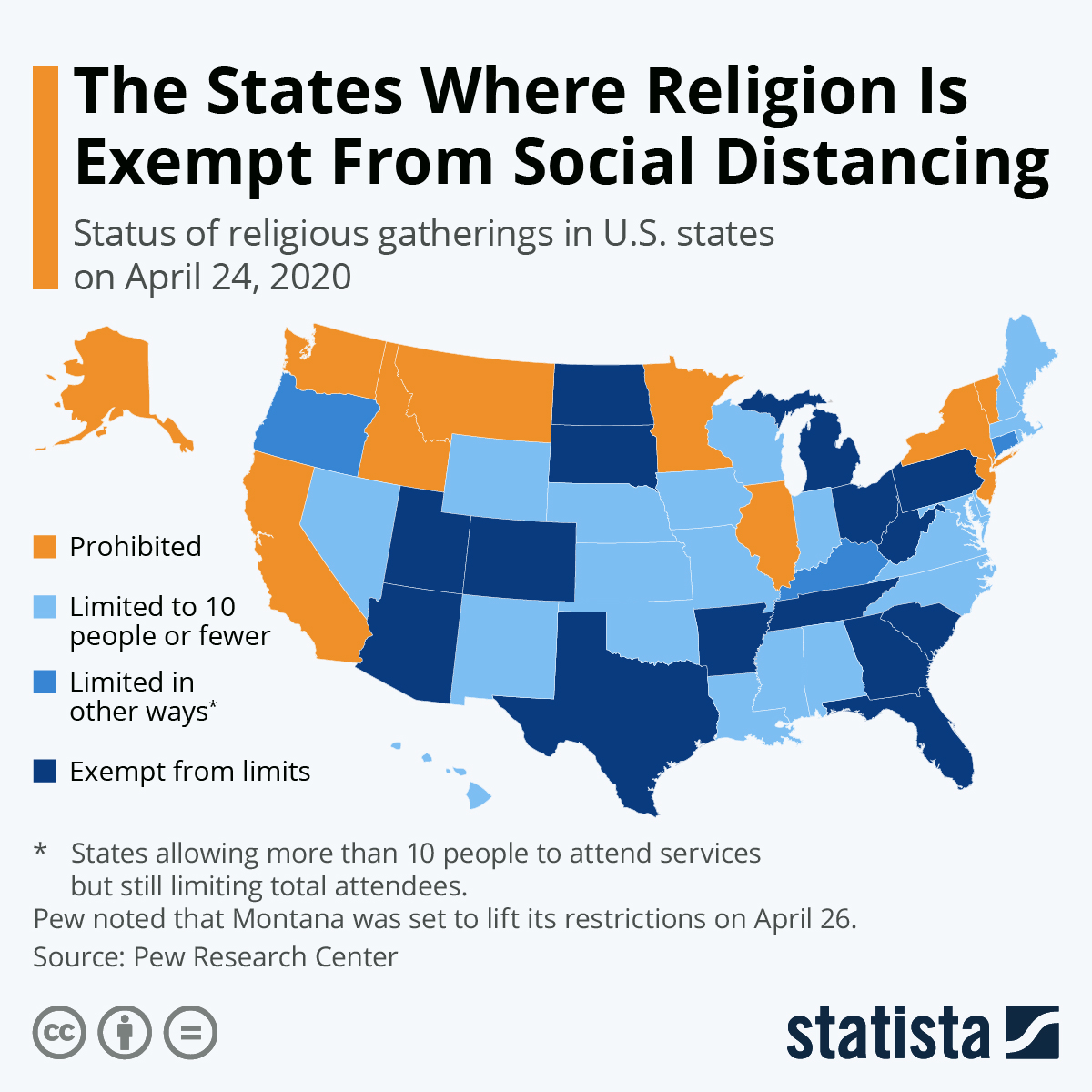As COVID-19 swept across the United States in recent weeks, every state implemented social distancing measures or stay at home orders in an attempt to contain it. Shops, restaurants and schools have remained shut while mass gatherings have been banned. Interestingly, there is actually a notable exemption from the effort in many parts of the country and that's in-person religious services and gatherings.
Religious services swiftly moved online as the coronavirus spread around the globe in recent weeks with St. Peter's Square in the Vatican remaining completely deserted on Easter Sunday as the Pope's mass was livestreamed. Ramadan has also been impacted in Kenya where Muslim leaders requested the reopening of Mosques and the lifting of an evening curfew to facilitate Friday prayers, requests, that were denied. The hajj is now also under threat of cancellation with Saudi authorities urging Muslims to postpone their plans to attend the pilgrimage.
According to a Pew Research Center analysis of recent state-level regulations, in-person religious services and gatherings are still continuing in many U.S. states. In fact, only 10 states have forbidden such gatherings in any form and California is one of them. That prompted legal action against Gov. Gavin Newsom by a group of churches who claim their First Amendment right to free exercise of religion is being infringed upon.
Other states, including South Carolina and Florida, have deemed religious services essential alongside supermarkets and healthcare infrastructure. A total of 15 states have allowed religious gatherings to continue without any restrictions on their size while another 22 have said that they can go ahead if they are limited to 10 people or less. The CDC has recommended the cancellation of gatherings of 10 people or more and that if they do occur, a distance of at least 6 feet should be maintained between participants.





















